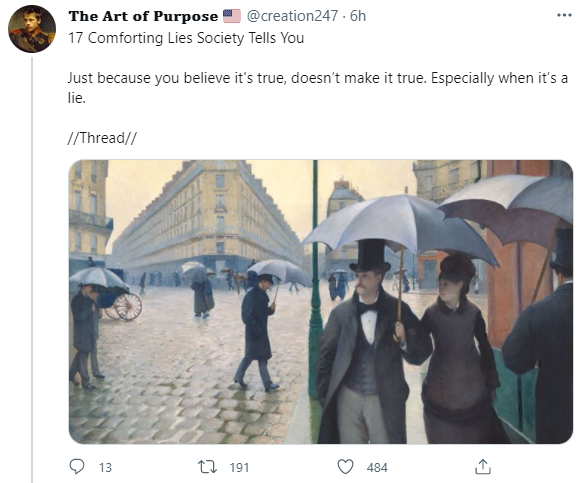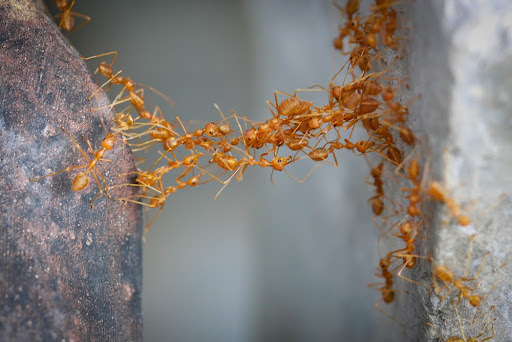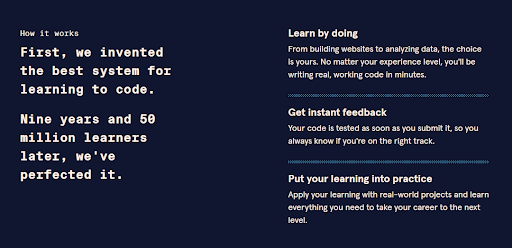“If you cannot do great things, do small things in a great way.”
~ Napoleon Hill
Greetings from LA and Oahu!
This week we spoke with an expert salary-negotiator, found a Tweet thread exposing society’s lies, learned why ants and neurons are similar, found a resource for people who want to learn how to code, and read about the fates of human societies.
Oh — and we also have a riddle for you 😉
Our challenge is for you to spend some time in the great outdoors.
Salary Negotiations
This week we spoke with Josh Doody, the author of Fearless Salary Negotiation: A Step-By-Step Guide to Getting Paid What You’re Worth
After negotiating at his own day-job to double his salary in just three years, he set out to teach other people how to do the same thing.
Since 2015, he’s helped hundreds of people earn tens of thousands more dollars per year.
We asked him about a range of topics — from quitting his day-job and growing his business to, of course, negotiating a salary.
First, we asked Josh what gave him the guts to leave his day-job. He said…
“I definitely would not use the word ‘guts’… it definitely wasn’t guts for me. I’m an engineer so I basically engineered an opportunity to quit my day job.”
“The reason I say it didn’t take guts is because I had a bunch of money in the bank — at least relative to what I’m used to — and I had a software company that was generating a little bit of revenue. And I had a book that I published on salary negotiation and I thought I could generate some money from that. So it was really just a math problem of how long can I last if I don’t have any income — and the answer to that was 18 months. And I figured if I can’t make it work in 18 months, then it wasn’t meant to be or I don’t have the skills yet and I’ll try at some point in the future.”
When we asked him how he grew his business, he said,
“In the beginning, growing a business is like planting a seed and you can only do three things: give it water, air, sunlight, and fertile ground. And you just do that until a plant pops up — if a plant pops up, then you’re onto something. Early on I’m not thinking ‘how can I grow this business’, I’m thinking ‘how can I create something that people want’.”
“Eventually, something might work. And then you grasp onto that and try more of it. See if you can make some money. And keep going.”
“Then over time it becomes a different thing. Now there’s a sprout and it’s becoming a plant. Then it’s like ‘how do I take a piece of this plant and transplant it?’, ‘how do I raise my rates’ or ‘which niche is working best?’, and you can start marketing in a natural way that works.”
And finally, we asked him what advice we would give to people who are afraid to negotiate their salary…
“For people who are afraid, you should negotiate. There’s no downside to it. The biggest fear people have is that the offer is going to go away if they negotiate. I’ve negotiated over 100 offers with my clients and I’ve only seen 2 get pulled away — both of which turned out to be companies my clients didn’t really want to work with anyway. If you build your career strategy around that particular fear, you’re gonna leave a lot of money on the table.”
“And second, the biggest pitfall to negotiating is discussing your current salary or your salary requirements anytime before they make you an offer. If they ask you what you’re hoping to make, you should not give them your salary expectations — even if you think you’re saying a huge number, because you don’t know if that’s a huge number or not. This is the biggest mistake that people make. Because once you’ve named a number, you’ve seriously restricted your options when you go to negotiate later.”
You can learn more about Josh on his website or follow him on Twitter, or LinkedIn. He also has an awesome article over here with more details about how to negotiate a salary — it’s worth checking out.
Comforting Lies

Obviously, no society is perfect — each has biases, beliefs, and logical inconsistencies that make a person cringe only once they’ve thoughtfully stepped outside of its ecosystem.
And The Art of Purpose Twitter profile recently shared a thread with “17 comforting lies society tells you.”
Check it out — it’s good to question the “norm” sometimes.
Here were our “favorite” (or is it “least favorite”) lies that the thread mentions…
- You should follow your passion
- You need to find your perfect match
- Save 10% of your income
- Breakfast is the most important meal
- Be the last one to leave work
Ants as Neurons

Being relatively unintelligent creatures, it’s remarkable to watch ants wander about in straight lines, create large colonies, and serve the same queen.
But here’s a question: Which individual ant knows how to do that? Which ant contains the necessary knowledge to build an intricate ant colony?
New research suggests that ants really just wander randomly — not in “predictable patterns”, even though that’s what it seems like when we watch them — which makes the above questions even more difficult to answer…
As Douglas Hofstadter asks in Gödel, Escher, Bach, “how then does the nest get created…where does the information reside?”
In his book, Hofstadter builds a metaphor (partly, as this metaphor accounts for only 20 pages of his 700-page tome) between ants and their colonies and brain neurons and their complex processes.
No single neuron is capable of eyesight, for instance, but together, various neurons all firing at the same time with very individual triggers and outputs allow the human animal to see. Our brain’s neurons thus (and ants) are insignificant on their own, but remarkable when working together. What does this teach us about consciousness and intelligence?
If you want to learn more about this metaphor without diving deep into philosophy, check out this article: The mind of an anthill by Bob Holmes.
Coding (For Newbs)

Coding is probably one of the most profitable skills a person can have in today’s marketplace — in 2019, the median salary for Software Developers was $107,510, according to U.S. News.
Additionally (according to the same source), “The BLS projects the software development field will grow by about 22% by 2029, with 316,000 jobs added by that time.”
Lots of demand means big salaries and plenty of opportunity for people who know how to code.
But how do you learn?
Codecademy is a great place to start — newbs (like Alec and me) can start learning how to code for free in Python, JavaScript, HTML, and more. Each course teaches you the language and gives you an environment for practicing what you’ve learned (i.e. you actually get to code). They also have a “Pro” plan that gives you access to more courses and programs, but if you’re interested, we recommend getting your feet wet with the free version first.
Codecademy isn’t a sponsor, by the way, we just think their software is awesome for learning how to code — we’ve both used it ourselves — and we wanted to share it with you.
Guns, Germs, & Steel
Have you ever wondered why some ancient tribes made large technological, civil, and ecological leaps and went on to dominate other tribes who’d made far less progress?
Why, for instance, did Western Europe end up with guns and government while ancient tribes they discovered still only hunted and gathered for resources?
That’s the question that Jared Diamond seeks to answer in his Pulitzer prize-winning book, Guns, Germs, and Steel: The Fates of Human Societies.
His conclusion?
“All human societies contain inventive people. It’s just that some environments provide more starting materials, and more favorable conditions for utilizing inventions, than do other environments.”
He dives into more detail to explain why farming (a springboard for further development) developed in some places but not others — usually because agriculture either did or didn’t allow for it, or because hunter-gathering remained as the more “cost effective” option in an area — and lots of other natural (and logical) reasons why human societies are the way they are today.
It’s a great book and we highly recommend picking it up if the topic seems interesting to you.
This Week’s Photo

“A female African bush elephant eats acacia tree in the Lewa Wildlife Conservancy in northern Kenya, near Isiolo, on July 17, 2021, as Kenya Wildlife Services conducts a wildlife count.” via The Atlantic
Extra Stuff
Here’s some extra stuff that caught our eye this week…
- Against Persuasion by Boston Review
- Pebbles by Agnes Callard
- Not So Natural Selection by The New York Review
This Week’s Riddle
Who doesn’t love a good riddle?
So we thought we’d start including a riddle in each email to keep you on your toes 😉
Here’s the first one — try not to look at the answer if you can help it — the answer is at the bottom of this email!
I have cities, but no houses. I have mountains, but no trees. I have water, but no fish. What am I?
The Weekly Challenge
When did you last spend some time in nature? Lakes, rivers, mountains, forests, and oceans… they’re peaceful and healing in a way that’s difficult to define — so we won’t try. But we will challenge you to spend a little time in nature this week. Hike, go fishing, have a picnic, kayak, spend some time at the nearest lake or river, or even just read outside in your backyard for a while. It’s a birthright for all of us. So let’s take advantage of that.
Until next week,
Mike & Alec
Riddle answer: a map
